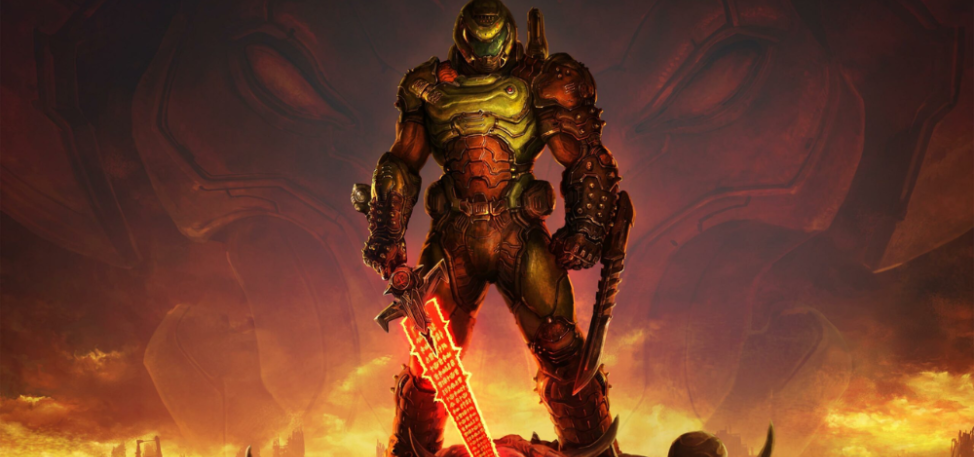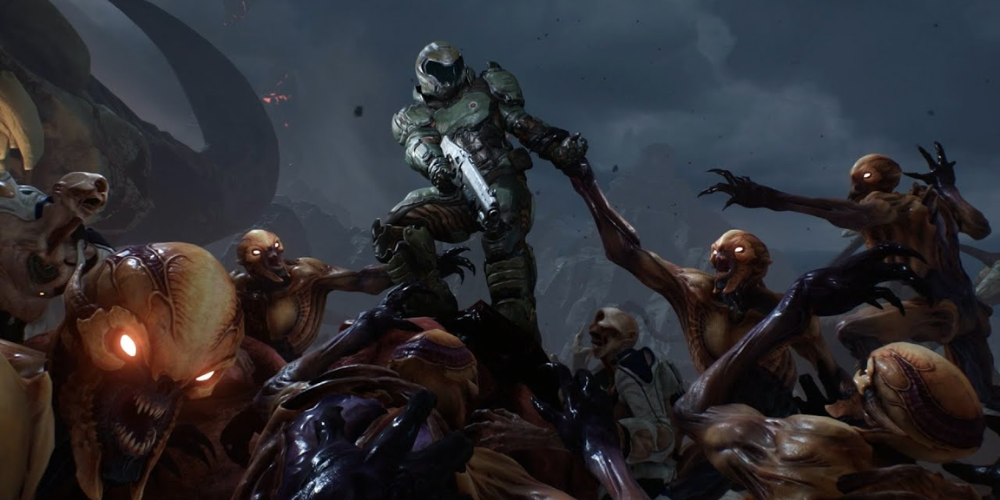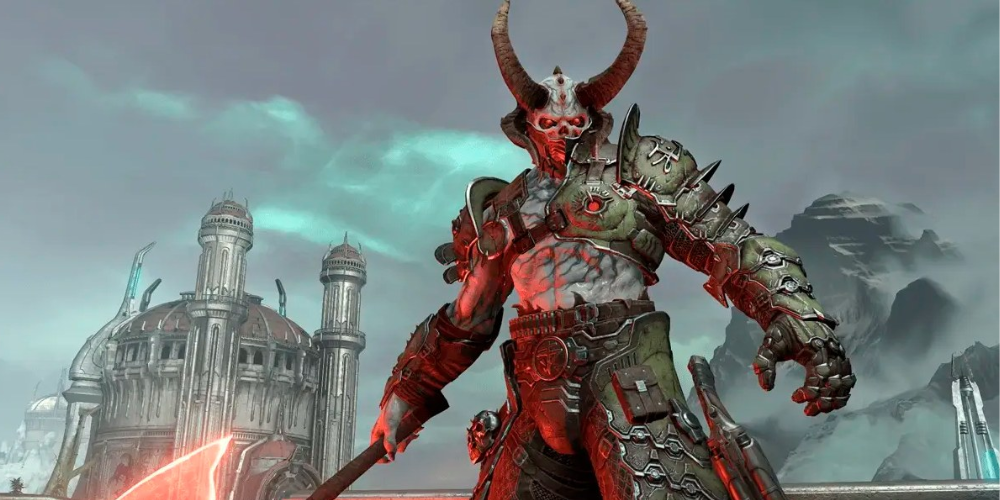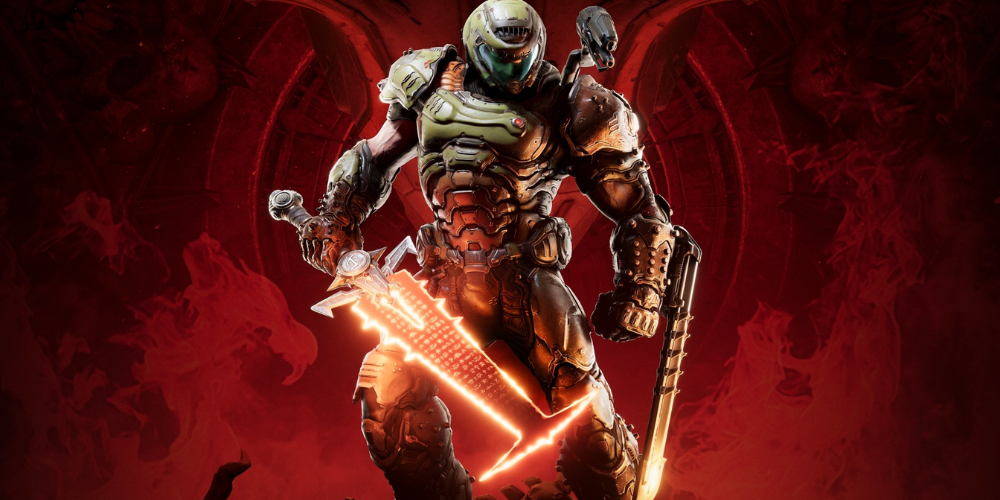Doom Series – Evolution of the FPS Genre
Polina Hans
07 Jun 2024

he Doom series stands as a monumental pillar in the history of first-person shooter (FPS) games. Since its inception in 1993, Doom has captivated gamers with its intense action, chilling atmospheres, and groundbreaking technology. As a long-time fan and avid player, I have witnessed the evolution of this iconic series, and in this article, I will take you through its journey from inception to modern-day releases.
Gameplay Mechanics
The gameplay of Doom is synonymous with high-octane, visceral combat. Gamers take on the identity of a space marine, often known as "Doomguy," as they traverse labyrinthine levels filled with demons and other terrifying creatures. The core mechanics involve fast-paced movement, quick reflexes, and strategic use of a diverse arsenal ranging from the iconic chainsaw to powerful plasma rifles. Health and ammunition management are crucial, as players often find themselves teetering on the brink of death, adding to the adrenaline-pumping experience that defines Doom.
The Story of Doom
Doom's narrative takes players on a hellish journey set in various locations, including Mars and Hell itself. The series begins with the Doom Marine battling demons unleashed by a teleportation experiment gone awry. As the games progress, the plot delves deeper into lore, uncovering ancient prophecies, demonic cults, and the eternal struggle between humanity and Hell's forces. Despite its seemingly simplistic story, Doom crafts a rich, engaging universe that keeps players coming back for more.

Bugs and Glitches
Like any ambitious game series, Doom has had its share of bugs and glitches. Early titles, particularly Doom and Doom II, had issues with level geometry, enemy behavior, and collision detection. Some of these quirks became endearing to fans, such as the infamous "Doom door" bug where sprites could become misaligned. Modern iterations have fewer technical hiccups, thanks to advances in game development, but occasional bugs can still disrupt the immersion, reminding us of the complexities involved in creating such detailed virtual worlds.
Award Nominations and Achievements
Doom's impact on gaming is reflected in its numerous award nominations and accolades. The original Doom garnered critical acclaim for its innovative design, earning spots in various "Greatest Games of All Time" lists. Doom (2016) revitalized the franchise, winning awards for Best Action Game and Best Music/Sound Design at The Game Awards. The series' latest entry, Doom Eternal, continued this trend, securing nominations for Game of the Year and Best Action at the 2020 Game Awards, further cementing Doom's legacy in the annals of FPS history.
Graphics and Visual Style
The visual evolution of Doom is truly remarkable. The original game utilized cutting-edge 2.5D graphics, creating a pseudo-3D environment that was revolutionary for its time. Doom 3 embraced a darker, more realistic aesthetic with advanced lighting and shadows, appealing to a new generation of gamers. Doom (2016) and Doom Eternal pushed the envelope with highly detailed 3D models, dynamic lighting, and fluid animations, all while maintaining the series' signature fast-paced action. This visual refinement showcases id Software's commitment to staying at the forefront of game graphics technology.

Design and Level Architecture
Level design in Doom is an art form unto itself. Early levels were intricate mazes filled with secret areas, key cards, and sprawling layouts that encouraged exploration. Doom 3 introduced more linear, narrative-driven design, focusing on atmospheric tension and horror. Recent titles have found a balance, offering expansive, multi-layered environments that reward thorough investigation while maintaining a clear path forward. This evolution reflects a sophisticated understanding of player engagement, blending nostalgia with modern design philosophies.
Sound and Music
Sound design in Doom is critical to its immersive experience. From the haunting ambient noises of early games to the adrenaline-pumping metal tracks of Doom (2016) and Doom Eternal, audio has always been a key component of the series. Composer Mick Gordon's work on the recent titles has been particularly noteworthy, blending industrial metal with electronic elements to create a soundtrack that perfectly complements the gameplay's frenetic pace. The sound effects, from the iconic demon growls to the satisfying boom of the shotgun, further enhance the visceral thrill of playing Doom.
Cheat Codes and Easter Eggs
Cheat codes in Doom are legendary, offering players humorous and outrageous ways to modify their gameplay experience. Famous codes like "IDKFA" (all weapons, keys, and ammo) and "IDDQD" (invulnerability) have become part of gaming culture. Recent games have carried on this tradition, including various Easter eggs and hidden references that pay homage to the series' rich history and the broader gaming community. These hidden treasures bring an additional element of enjoyment and depth, encouraging players to discover every concealed gem dispersed within the game.
Tips and Strategies for Success
To excel in Doom, mastering core mechanics is essential. Prioritize fast movement and dodging to avoid enemy attacks, and never stay stationary for long. Learn enemy patterns and weaknesses to effectively counter each threat. Resource management is crucial; conserve ammo and health by utilizing melee attacks when appropriate and finding secrets to replenish supplies. Experiment with different weapons and upgrades to find the best loadouts for your playstyle. Lastly, embrace the chaos and remain aggressive; hesitation can be deadly in the relentless world of Doom.

Legacy of Doom - Shaping the FPS Genre
Doom's influence on the FPS genre cannot be overstated. It set the standard for first-person shooters, introducing mechanics and gameplay elements that became foundational in subsequent titles. The series has inspired countless developers and games, from seminal titles like Quake and Half-Life to modern franchises such as Halo and Call of Duty. By continuously innovating and pushing boundaries, Doom has left an indelible mark on the gaming industry, proving that even decades after its debut, it remains a benchmark for excellence in FPS design.
Community and Modding
The Doom community is one of the most passionate and dedicated in gaming. Modding has been a significant aspect of the series, with fans creating custom levels, total conversions, and various mods that extend the game's longevity and replayability. Tools like Doom Builder have empowered a generation of amateur developers to craft their own Doom experiences, resulting in a thriving ecosystem of user-generated content. This collaborative spirit has kept Doom alive and relevant, fostering a sense of camaraderie and shared creativity among its players.
Future of the Doom Series
Looking forward, the future of the Doom series appears bright. With the success of Doom (2016) and Doom Eternal, id Software has shown its ability to evolve and innovate while staying true to the franchise's core principles. Potential future installments will likely continue to refine and expand upon the elements that have made Doom a beloved series, exploring new narratives and gameplay mechanics while maintaining the intense action and fast-paced combat that fans crave. With the progression of technology, we can look forward to even more captivating and visually breathtaking Doom experiences in the future.
Conclusion
The Doom series is a testament to the enduring appeal of well-crafted game design, frenetic action, and immersive storytelling. From its humble beginnings as a pioneer of the FPS genre to its current status as a modern gaming juggernaut, Doom has consistently pushed the envelope, setting new standards for excellence. Whether you are a veteran fan or a newcomer, the series offers a thrilling and rewarding experience that stands the test of time. As we look to the future, one thing is clear: The impact of Doom is still ongoing, and its legacy will keep influencing the gaming industry for many years ahead.
